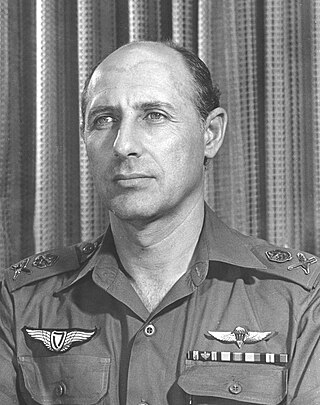This article has multiple issues. Please help improve it or discuss these issues on the talk page . (Learn how and when to remove these template messages)
|

Uri Bar-Joseph is professor emeritus in the Department for International Relations of The School for Political Science at Haifa University. He specializes in national security, intelligence studies, and the Arab-Israeli conflict.
Contents
He earned his PhD in 1990 from Stanford University, under the supervision of Alexander George. His dissertation, Intelligence Intervention in the Politics of Democratic States: The US, Israel, and Britain was published by Penn State Press and won Choice's Outstanding Academic Books Award for 1996.
Bar-Joseph is best known for his studies of the intelligence failure of the Yom Kippur War. His book, The Watchman Fell Asleep (SUNY, 2005), is the first detailed academic study of the subject and is considered the most important study in the field. The Hebrew edition (2001) won the Israeli Political Science Association Best Book Award in 2002. The Israeli-made docudrama, "The Silence of the Sirens", which is based on Bar-Joseph's book, won the Israeli Academy Award for the best television feature film in 2004.
In 2016, Bar-Joseph published The Angel:The Egyptian spy who saved Israel (HarperCollins), which recounts the story of Ashraf Marwan (code-named by the Mossad "The Angel"), who was President Gamal Abdel Nasser's son-in-law, President Sadat's close advisor, and an Israeli spy. The book was the winner of the National Jewish Book Award (History) in 2016 and was selected by the American Association of Former Intelligence Officers (AFIO) as the Best Intelligence Book of 2017.
A Netflix movie, The Angel, based on Bar-Josef's book, was released in 2018. The publisher of the Egyptian edition of the book, Khaled Lotfy, was sentenced to five years in prison in April 2019 for “spreading rumors and revealing military secrets”. He was awarded the International Publishers’ Association (IPA) Prix Voltaire [1] and was released from jail in November 2022.
In 2017 Bar-Joseph co-authored with Rose McDermott, in publishing Intelligence Success and Failure: The Human Factor by Oxford University Press.
In August 2021, Bar-Joseph published the book A War of Its Own: The Israeli Air Force in the Yom Kippur War (Hebrew, Dvir, forthcoming in English by Post Hill Press in 2024). Drawing on new data, the book explains why the Israeli Air Force failed to adequately support ground troops during most of the fighting, despite its obvious airborne superiority and state-of-the-art equipment.
Bar-Joseph’s next book, Resilience, The IDF and the Yom Kippur War (Hebrew, Dvir, 2023), challenged the commonly accepted view, which locates the cause for Israel’s military failures in the deep, long-term processes that had changed Israeli society and the IDF since the Six-Day War. The root of the problem, the book claims, lies in the failures of specific individuals, most notably Chief of Military Intelligence Eli Zeira, Chief of the Southern Command Shmuel “Gorodish” Gonen, and Commander of the Israeli Air Force Benny Peled, whose underperformance and grave mistakes played key roles in the army’s overall unpreparedness. The book also describes the IDF’s remarkable military achievements, following its recovery after the first two days of fighting. It won the Chaikin Prize, Haifa University (2024).
Bar-Joseph's most recent book is "Beyond the Iron Wall: The Fatal Flaw in Israel's National Security" (Hebrew, Dvir, 2024). The trigger for writing the book was the October 7 Hamas attack and its main claim is that Israel continues to live under heavy threats not due to a lack of military power but because it has refused and still refuses to reach political agreements centered around returning the territories occupied in 1967. These agreements would aim to create a new status quo that reduces the motivation and ability of various regional actors to harm Israel’s security.
Bar-Joseph is a member of the New Israel Fund and a supporter of the anti-occupation NGO “Breaking the Silence.” He was an outspoken opponent of Benjamin Netanyahu’s policy on the Iranian nuclear program and, in 2005, signed his name to a petition supporting faculty and students’ right to refuse to serve in the occupied territories.
















